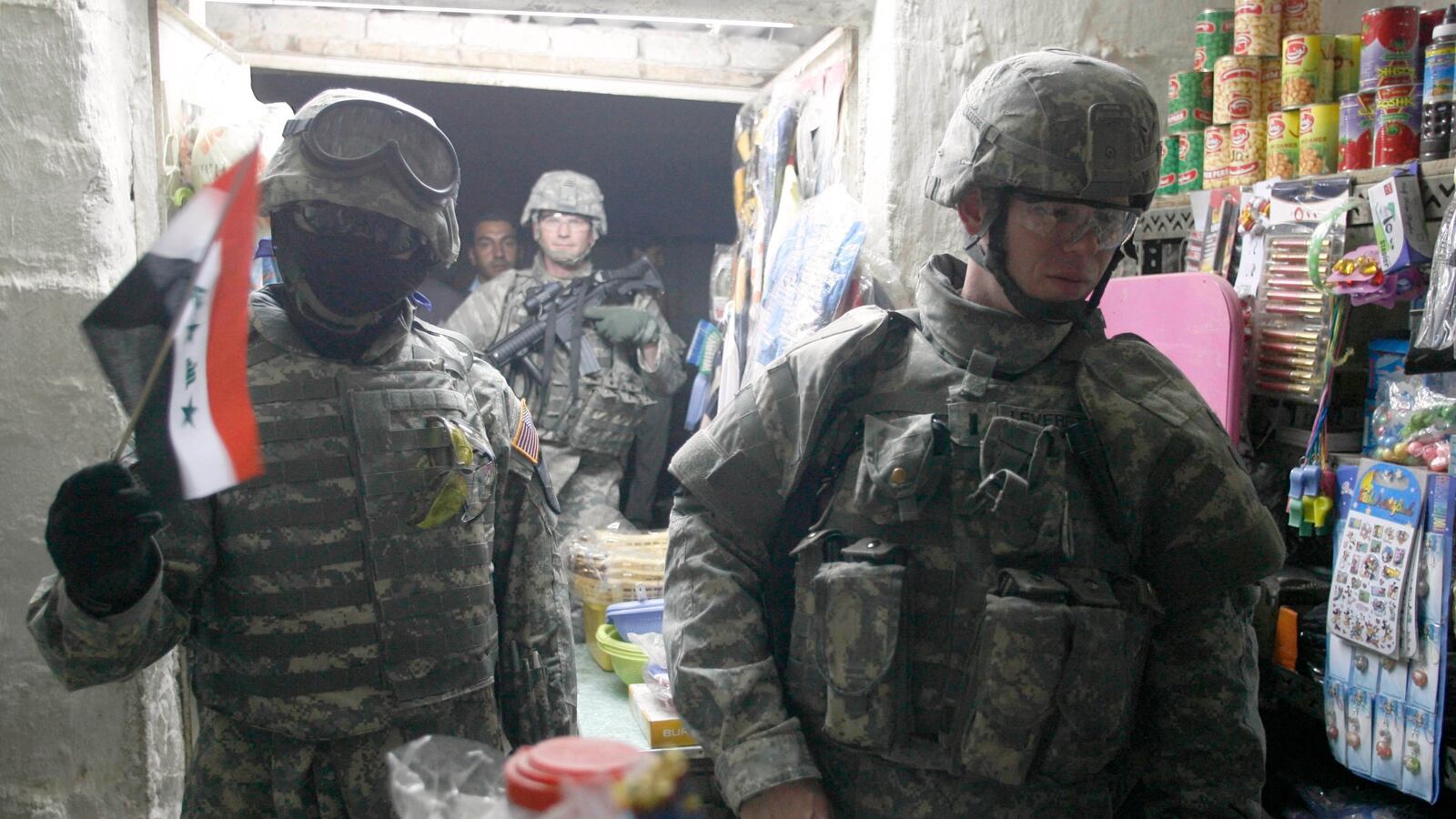Donald Trump’s immigration plan—well, at least the one he has this week—calls for banning thousands of people, including translators who risked their lives working alongside U.S. troops, and who still face the very real risk of death for assisting Americans.
“We will have to temporarily suspend immigration from some of the most dangerous and volatile regions in the world that have a history of exporting terrorism,” Trump said in a recent speech in Youngstown, Ohio.
Trump has not laid out a complete list of countries that will require a suspension in immigration, followed by so-called extreme vetting of immigrants. But according to various interviews he has given, Iraq and Syria would be on it.
Among the countless immigrants Trump would keep out are some 58,000 Iraqis and their dependents who worked in various capacities with the American military, diplomats, NGOs, and media organizations, and are awaiting approval to come to the United States, according to a 2015 State Department report.
Trump has tried to cast these people as potential terrorists. But Ryan Crocker, a veteran diplomat and former U.S. ambassador to Iraq, sees them as heroes.
“I don’t see Iraqi… interpreters as some kind of refugee. I see them as fellow veterans,” Crocker told The Daily Beast. “They fought with us and they are in jeopardy as a result. Somehow to categorize incredibly courageous and selfless individuals as an enemy is just a betrayal of what we stand for as a people.”
Those who worked with American forces continue to face the threat of violence in Iraq. “Ahmed,” who asked to use a pseudonym because some of his family remain in that country, worked as an interpreter with the American military and eventually received a visa to come to the United States.
Iraqi militias and armed groups “would probably pay money to identify interpreters who have worked with American forces,” he told The Daily Beast. “Most of those interpreters, when they worked, they didn’t really consider religion as part of their job. They worked based on what’s wrong and right, and decided to be on the side of the right… these people don’t deserve to be… left abandoned.”
Scott Cooper, a 20-year Marine Corps veteran with five tours in Afghanistan who works at the advocacy group Human Rights First, said that whether Trump favors a ban by nationality or his original ban of all Muslims, the result is “harmful to our national security, to our reputation internationally… I can’t fathom anyone from either party who is respected and thoughtful proposing such wholesale bans of citizens from certain countries, or wholesale bans against Muslims, dozens and dozens of whom I’ve served alongside.”
Trump’s national security plans come as the Senate has dropped the reauthorization of Afghan interpreter visas from its annual defense policy legislation, something that will need to be addressed in the fall, if Congress chooses to do so at all.
“The signal all this sends, whether it be a failure to reauthorize a certain piece or a ban on certain nationalities, sends a chilling signal all around the world about what you can expect when you help Americans. And next time when we have a contingency, it’s going to be a little harder to get help,” Crocker said, comparing the ban on nationalities to the Chinese Exclusion Act of the late 19th century, calling it “morally, in precisely that category.”
Trump campaign spokeswoman, Hope Hicks, did not respond to a request for comment, and the American Legion stressed that it did not have a national position on visas for interpreters.
But as Trump prepares remarks for his speech to the vets at the American Legion national convention next week, he would do well to keep in mind their commitment to the foreign allies they’ve worked with.
“Veterans are overwhelmingly supportive of [their interpreters]. And they overwhelmingly support the… program” that allows Iraqi interpreters to apply for immigration to the United States, said Cooper, who runs an initiative at Human Rights First that focuses on refugees who are endangered due to work with the American military. “On both sides of the aisle, they’re absolutely passionate about [this].”
—with additional reporting by Alexa Corse.




